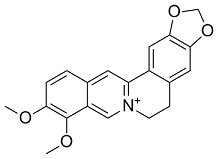Acetylcorynoline Although the cure rate has been significantly improved owing to advances in diagnostic imaging, radiotherapeutic techniques and chemotherapy regimens recently, distant metastases remain the main reason for failure of treatment. In these cases, palliative systemic therapy remains the primary therapeutic option and cisplatin-based combination chemotherapy is considered the standard front-line regimen for decades, offering response rates in the range of 50�C80% and a significant prolongation of overall survival. However, there are still wide individual differences in clinical response and outcomes. Some reports indicate that overall survival may exceed ten years for specific subgroups of patients. It is therefore of paramount interest to find an easily available model to help evaluate individual prognosis which will greatly improve the ability of clinical decision-making. Currently, clinical characteristics are dominating indexes for judging prognosis of metastatic NPC patients, such as 20S-Notoginsenoside-R2 performance status and disease-free interval. The prognostic value of circulating Epstein�CBarr virus DNA load has also been well established in various reports. Besides aforementioned prognostic factors representing tumor status and clinical characteristics, it is now recognized that the host inflammatory response, in particular the systemic inflammatory response, plays an important role in disease development and progression by inhibition of apoptosis, promotion of angiogenesis, and damage of DNA. Several inflammation-based prognostic scoring systems have been devised and found to be strongly correlated with prognosis in patients with a variety of neoplasms. These include a combination of neutrophil and lymphocyte counts as the neutrophil to lymphocyte ratio  and a combination of platelet and lymphocyte counts as the platelet to lymphocyte ratio, both of which reflect full blood count derangements induced by the acute phase reaction, while the Glasgow Prognostic Score incorporates raised circulating C-reactive protein and hypoalbuminemia. Recently some researches have also shown that markers of systemic inflammatory response represent reliable prognostic factors in patients with early nasopharyngeal carcinoma. However, to the best of our knowledge, there is no data regarding the prognostic impact of systemic inflammation-based scoring systems in metastatic NPC. In the present study, we therefore evaluated the clinical value of several inflammation-based prognostic scoring systems including GPS, NLR and PLR in a cohort of cisplatin-based treated patients with metastatic NPC. Markers of systemic inflammatory response represent reliable prognostic factors in patients with advanced cancer. To the best of our knowledge, this study has firstly demonstrated that the GPS, an inflammation-based prognostic score, is an independent marker of poor prognosis in patients with metastatic NPC and is superior to the NLR in terms of prognostic ability. Furthermore, our data demonstrated a significant, independent association between GPS and PFS. Accumulating evidence indicates the prognostic importance of GPS in various solid cancers, such as colorectal cancer, esophageal cancer, lung cancer, pancreatic cancer, and gastric cancer. A similar result was achieved in our study. The biological basis for the correlation between the GPS and survival are not completely understood. Below are some supposed mechanisms. First, cachexia, which often manifests as nutritional depletion and functional decline, is common in patients with advanced cancer and has been recognized to be associated with poorer outcome. CRP has been reported to be associated with the nutrition status and development of cachexia while albumin represents a negative acute phase protein and also represents a marker of nutritional status.
and a combination of platelet and lymphocyte counts as the platelet to lymphocyte ratio, both of which reflect full blood count derangements induced by the acute phase reaction, while the Glasgow Prognostic Score incorporates raised circulating C-reactive protein and hypoalbuminemia. Recently some researches have also shown that markers of systemic inflammatory response represent reliable prognostic factors in patients with early nasopharyngeal carcinoma. However, to the best of our knowledge, there is no data regarding the prognostic impact of systemic inflammation-based scoring systems in metastatic NPC. In the present study, we therefore evaluated the clinical value of several inflammation-based prognostic scoring systems including GPS, NLR and PLR in a cohort of cisplatin-based treated patients with metastatic NPC. Markers of systemic inflammatory response represent reliable prognostic factors in patients with advanced cancer. To the best of our knowledge, this study has firstly demonstrated that the GPS, an inflammation-based prognostic score, is an independent marker of poor prognosis in patients with metastatic NPC and is superior to the NLR in terms of prognostic ability. Furthermore, our data demonstrated a significant, independent association between GPS and PFS. Accumulating evidence indicates the prognostic importance of GPS in various solid cancers, such as colorectal cancer, esophageal cancer, lung cancer, pancreatic cancer, and gastric cancer. A similar result was achieved in our study. The biological basis for the correlation between the GPS and survival are not completely understood. Below are some supposed mechanisms. First, cachexia, which often manifests as nutritional depletion and functional decline, is common in patients with advanced cancer and has been recognized to be associated with poorer outcome. CRP has been reported to be associated with the nutrition status and development of cachexia while albumin represents a negative acute phase protein and also represents a marker of nutritional status.